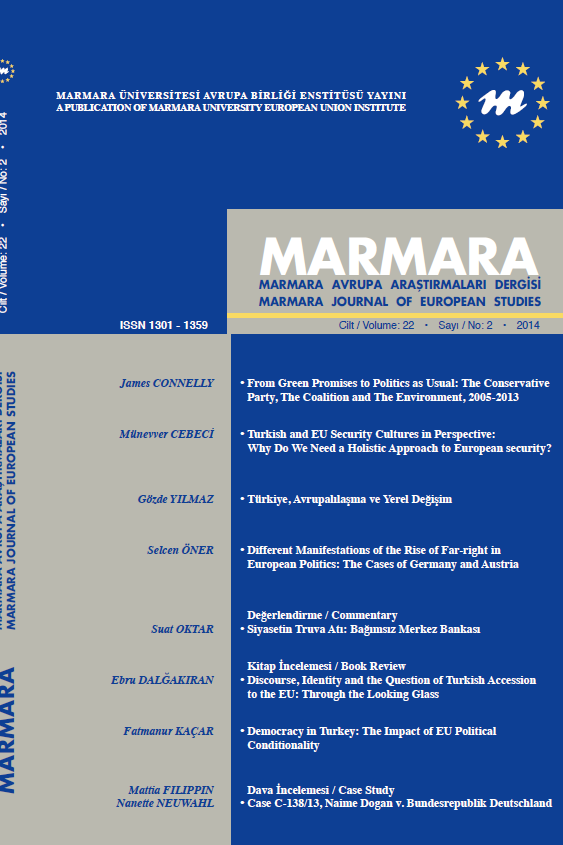THE TRANSITION PERIOD TO EURO AT FULL MONETARY INTEGRATION AND TURKISH FINANCIAL SECTOR
-
THE TRANSITION PERIOD TO EURO AT FULL MONETARY INTEGRATION AND TURKISH FINANCIAL SECTOR
TRANSITION, PERIOD EURO,
___
- Balassa, B., "Monetary Integration 1in European Common Market", Alexsandre K. Swoboda (Ed.), Europe and Evolution of the International Monetary System, Leiden, 1973.
- Bank Capital- Hazine Birimi, "Tek Paraya Dogru llerlerken- Euro", July 1998.
- Banking Federation of the European Union, Introduction of the Single Currency the Views of the European Union Brussells, Nowember, 1995.
- Erbil, B., "Tek para ve Ekonomik Parasal Birligin Son A§amasma Gegi§in Muhtemel etkileri", iKV Dergisi, January-February 1998.
- Federation Reserve Bulletin, "Progress towarda European Monetary Union", Washington D-C, Volume: 77, N.1 0, October 1991.
- Financial Times, 23 Nowember 1995.
- Finansal Forum, "Mali Sistem Euro'ya Ham", June 1998. Grouve, P.O., The Economics of Monetary Integration, Oxford University Press, Oxford, 1997.
- Haberler, G., "The International Monetary System, The European Monetary System and a Single European Currency 1n single European Market", Bub, N. I Duwendac,D. and Richter, R.(Vice President of the German Bundesbank) (Eds.), Frankfurt, 1986.
- iKV, AB'de Ekonomik ve Parasai/Birlik konusunda Son Geli§meler, 15 May 1998
- Maclup, F., A History of Thought on Economic Integration, Colombia University Press, New York, 1977.
- Okay, C., "TARGET Sisteminin Tamt1m1", Bankacilar Dergisi, 24 March 1998.
- Papadia, F. and Saccomanni, F., "From Werner Plan to Maastricht Treaty: Europe's Stubborn Quest for Monetary Union", Steinherr,A. (Ed.); 30 Years of European Monetary integration, New York, 1994.
- Robson, P., TKhe Economics of International Integration, Second Edition, George Allen and Uncoin, London, 1984.
- Silguy, Y-T. D, "Euro ve Uluslararas1 Para sistemi", GOnce! Avrupa Dergisi, September-October 1997
- ISSN: 1301-1359
- Yayın Aralığı: Yılda 2 Sayı
- Yayıncı: Marmara Üniversitesi
TURKEY AND THE EUROPEAN UNION CONVERGING OR DRIFTING APART?
SERBEST PİYASA EKONOMİSİ VE "İKTİSADİ GÜÇ"
THE GORBATCHEV BANG AND REGIONALIZATION
AVRUPA BİRLİĞİ'NDE İNSAN HAKLARININ YERİ: KURUMSAL DÜZENLEME VE BİREYLERİN HAKLARI
PROF. DR. ORHAN OĞUZ: O, BiR EKOL..
ODEMELER DENGESi, KURLAR, SORUNLAR
AVRUPA - AKDENİZ ORTAKLIĞI VE TÜRKİYE
THE TRANSITION PERIOD TO EURO AT FULL MONETARY INTEGRATION AND TURKISH FINANCIAL SECTOR
